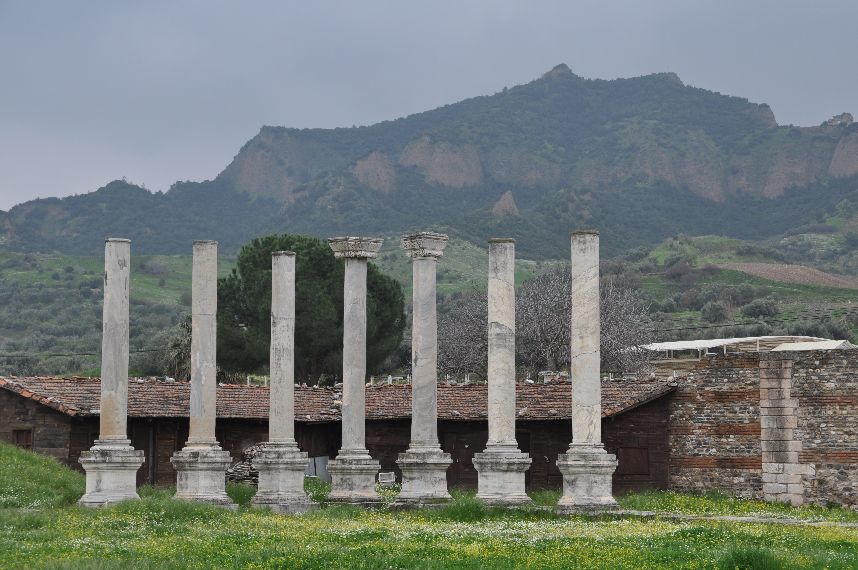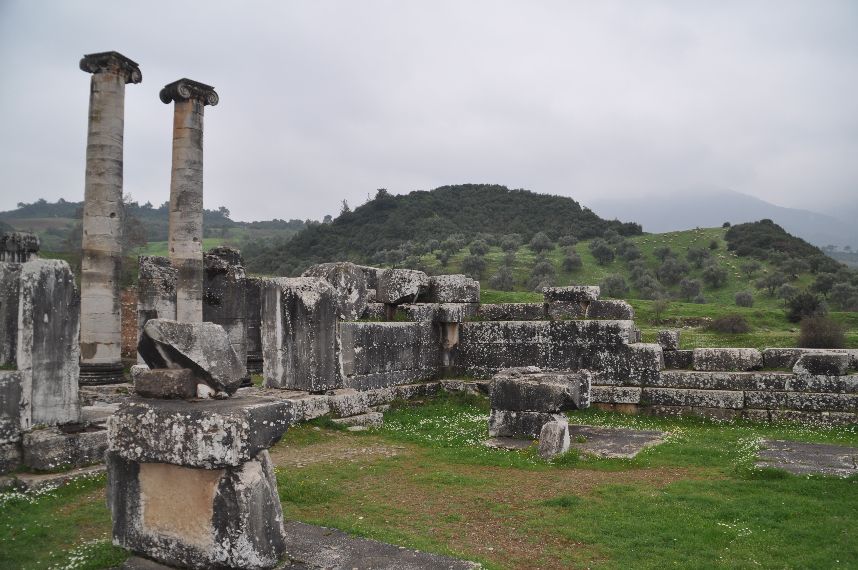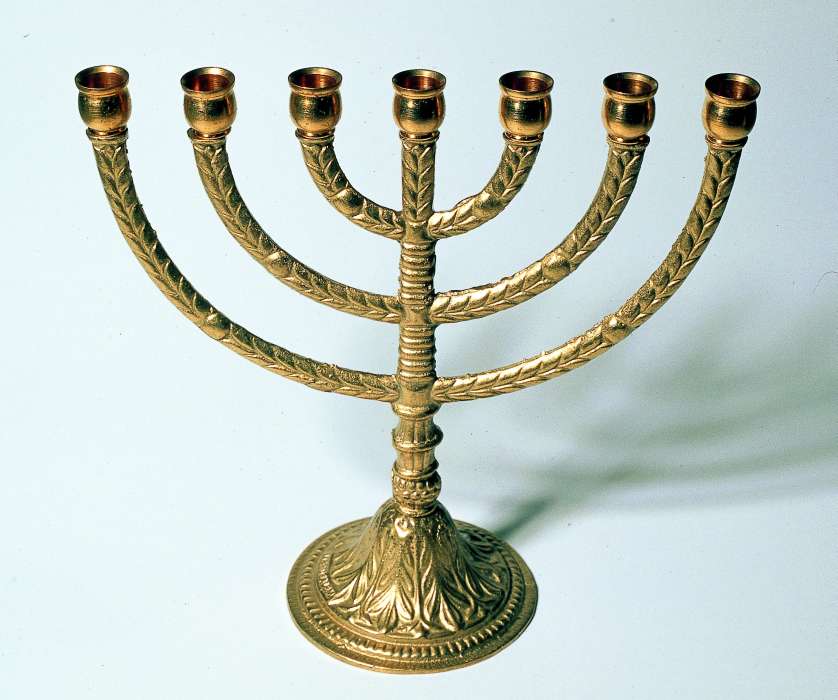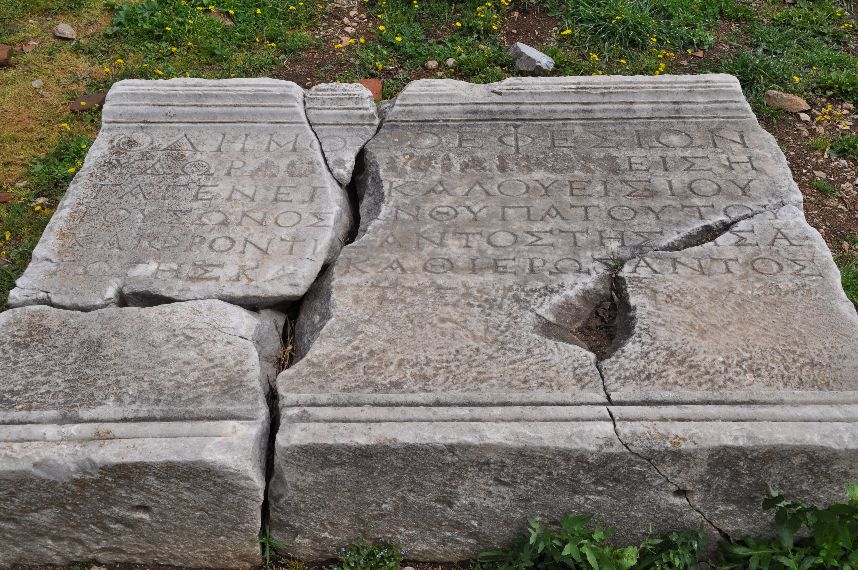To the Church in Sardis
3 1 “To the angel of the church in Sardis write:
These are the words of him who holds the seven spirits of God and the seven stars. I know your deeds; you have a reputation of being alive, but you are dead. 2 Wake up! Strengthen what remains and is about to die, for I have not found your deeds complete in the sight of my God. 3 Remember, therefore, what you have received and heard; obey it, and repent. But if you do not wake up, I will come like a thief, and you will not know at what time I will come to you.
4 Yet you have a few people in Sardis who have not soiled their clothes. They will walk with me, dressed in white, for they are worthy. 5 He who overcomes will, like them, be dressed in white. I will never blot out his name from the book of life, but will acknowledge his name before my Father and his angels. 6 He who has an ear, let him hear what the Spirit says to the churches.” (Revelation 3:1-6).
About the city of Sardis:
Sardis was a city which was famous for many different things: Sardis was the first place in the world to invent coins for trading currency. It was an important economic center in this region as well. It was in Sardis that they invented the art of dyeing wool and creating many textiles as well.
They city was grand and beautiful. Like most Hellenistic cities built over 2,500 years ago, it was a city which had as its center an acropolis, or castle fortress, on the top of the mountain. The commercial sites, entertainment, religious centers as well as political centers were in the lower valley, however, the people and military could retreat in times of danger to the top of the high mountain where they had a seemingly impenetrable fortress.
The altar of Cybele at Sardis is dated from as long as 2,700 years ago. Cybele was the ancient Anatolian Mother Goddess who was worshipped throughout this region. She is a major deity of the region and her worship brought much prosperity. The altar faces east in the center of the Sardis archaeological site, next to an area used for refining gold panned from the river. There was so much gold in this river, that some think the legend of “Midas” was born here. Midas was the king who was cursed by having everything he touched turn to gold.
The temple of Artemis was even more grand and influential than Cybele in the time of the New Testament church. The temple of Artemis was large, but was smaller than Artemis temple of Ephesus which was one of the wonders of the world with its 172 columns and immense size. Artemis is a god who roams the wild and is a twin god with Apollos, who is the god of the underworld. Artemis is considered a central deity and source of power for witchcraft.
The original city was an almost impregnable fortress, towering high above the valley below. It was the capital of the Lydian kingdom until Persian king Cyrus (from the Esther story) besieged the city and took the citadel in 546 BC. They defeated the city by apparently climbing the cliffs and entering by a weakly defended point where guards were sleeping under cover of darkness. Sardis did not learn their lesson though and the city was destroyed again using the same tactics again by Antiochus the Great in 214BC.
By the time of Christ, the city of Sardis was known in reputation, but was rapidly losing importance as the Roman leaders had moved the capital to Smyrna instead of continuing to build up Sardis. Her zenith had passed.
About the prophecy from Jesus about Sardis:
Like the other churches, Jesus first reveals something about himself which relates to the city of Sardis. He says, “These are the words of him who holds the seven spirits of God and the seven stars. I know your deeds; you have a reputation of being alive, but you are dead” (Revelation 3:1). Jesus speaks of the seven spirits of God and seven stars. This is interesting terminology. Many people believe that the “seven spirits of God” are referring to the seven spirits recorded in Isaiah 11:2 which says, “And the Spirit of the LORD shall rest upon him, the spirit of wisdom and understanding, the spirit of counsel and might, the spirit of knowledge and of the fear of the LORD.” The seven spirits are:
- The Lord
- Wisdom
- Understanding
- Counsel
- Might
- Knowledge
- Fear of the Lord
The seven stars are not as clear, but could just refer to the seven churches or simply perfection as in the Hebrew numbering system, seven always speaks of perfection. To a Sardinian believer, they would likely recognize immediately what the “seven spirits” were referring too. This is because in recent excavations they have discovered that at the heart of the city of Sardis was a very imposing structure of great prominence: A Jewish synagogue. In fact, Sardis was a key center of the Jewish Diaspora. The “seven spirits of God” is represented by the most Jewish of all symbols, the Menorah (or seven branched candle holder). It represents the tree of life, the burning bush of Moses, and the seven spirits of God and is also the symbol of the Jewish State. Christians and Jews were often very closely linked because of their similar background and monotheistic worship which was very unlike the polytheistic Greeks and Romans.
Not only was the Jewish connection significant, but Jesus was telling them that though they “have a reputation of being alive” (rich, powerful, influential), they in fact were dead. What had happened to the city over time had happened to the believers as well.
Jesus continues by issuing the strongest warning to the believers in Sardis. He says, “2 Wake up! Strengthen what remains and is about to die, for I have not found your deeds complete in the sight of my God. 3 Remember, therefore, what you have received and heard; obey it, and repent. But if you do not wake up, I will come like a thief, and you will not know at what time I will come to you.
4 Yet you have a few people in Sardis who have not soiled their clothes. They will walk with me, dressed in white, for they are worthy. 5 He who overcomes will, like them, be dressed in white” (Revelation 3:2-5). His words are clear. “Wake up!” The city of Sardis was twice completely destroyed twice because the soldiers were asleep and had exposed weaknesses. The same warning was to the church. They were once strong, but now they were weak and not alert. They had become complacent. Their only hope is to make adjustments. They must repent and obey what God has commanded.
Jesus says that if they do not repent, he will come like a thief (like Cyrus and Antiochus) and they will not know when he is coming. The believers will be destroyed. Sin will not be tolerated for long. Only through the mercy of God is he allowing time to repent. But judgment will not wait forever.
Yet, like the other prophecies Jesus also affirms them by saying, “4 Yet you have a few people in Sardis who have not soiled their clothes. They will walk with me, dressed in white, for they are worthy. 5 He who overcomes will, like them, be dressed in white” (Revelation 3:4-5). A remnant will survive because they have overcome and remained faithful! In a city which was known for dying, white was nothing. Yet, white is always the color of purity. It signifies that a small remnant had remained righteous and they would be saved. But the others, who had colored garments, symbolizing the masking and compromise with sin, would be destroyed.
As in the other letters, the key word of challenge is “overcome”. Overcoming speaks of persistence and faithfulness. Jesus says clearly that obedience in required and every short coming should be corrected by repentance.
How this applies to the believers today:
The church in most countries today has become complacent. They have allowed sin and idolatry to creep into the church. They are wealthy and have everything they desire. Yet among them is sin and compromise. When we think of leaders in our congregations, we often know of exposed sin and un-Christ-like behavior, yet we ignore it. Sin is rampant in the church. Compromise with evil is all around us, yet we shrug it off as “American culture” or “modern Christianity”.
Sardis was not an insignificant city. It was home to some of the largest buildings in the world. It had one of the greatest fortresses which was thought to be impenetrable. Yet, Sardis was conquered multiple times. It lost its importance and a massive earthquake in the first century completely destroyed the entire town and city. The high mountain citadel collapsed and buried the city. The believers were also destroyed. Nothing was left of Sardis. Today, it is only a pile of broken stones. There is no city here now, unlike Smyrna which is now more than 5 million people (called Izmir, Turkey).
The final part of the prophecy says, “I will never blot out his name from the book of life, but will acknowledge his name before my Father and his angels” (Revelation 3:5). The cities were all constructed with beautiful white marble. The builders, the Emperors and Kings, would always carve their names and make inscriptions glorifying themselves on columns and stones. However, when they would die, the following new rulers would simply scratch their names out of the marble and write in new ones. Jesus promised to those who over come that their names could never be erased.
Even the great temple of Artemis, which could have been one of the “seven wonders of the ancient world”, but they subdivided the temple to serve other deities like Zeus and the current Emperor. The result of this compromise was an insignificant temple. Another city down the road, Ephesus, built another temple to Artemis and it was the largest in the world and was declared one of the real “seven wonders of the ancient world” instead.
Believers today must heed this message: do not compromise with the world. Do not think that you are mighty and important. If anything, the Western Protestant church today is known for arrogant leaders and elaborate buildings. Do not think they will survive the judgment of God. What we see as important today will vanish in history, like Sardis, if we do not repent. God will only preserve the faithful remnant. Be that remnant, obey Jesus fully! Stand strong and oppose compromise with sin.



